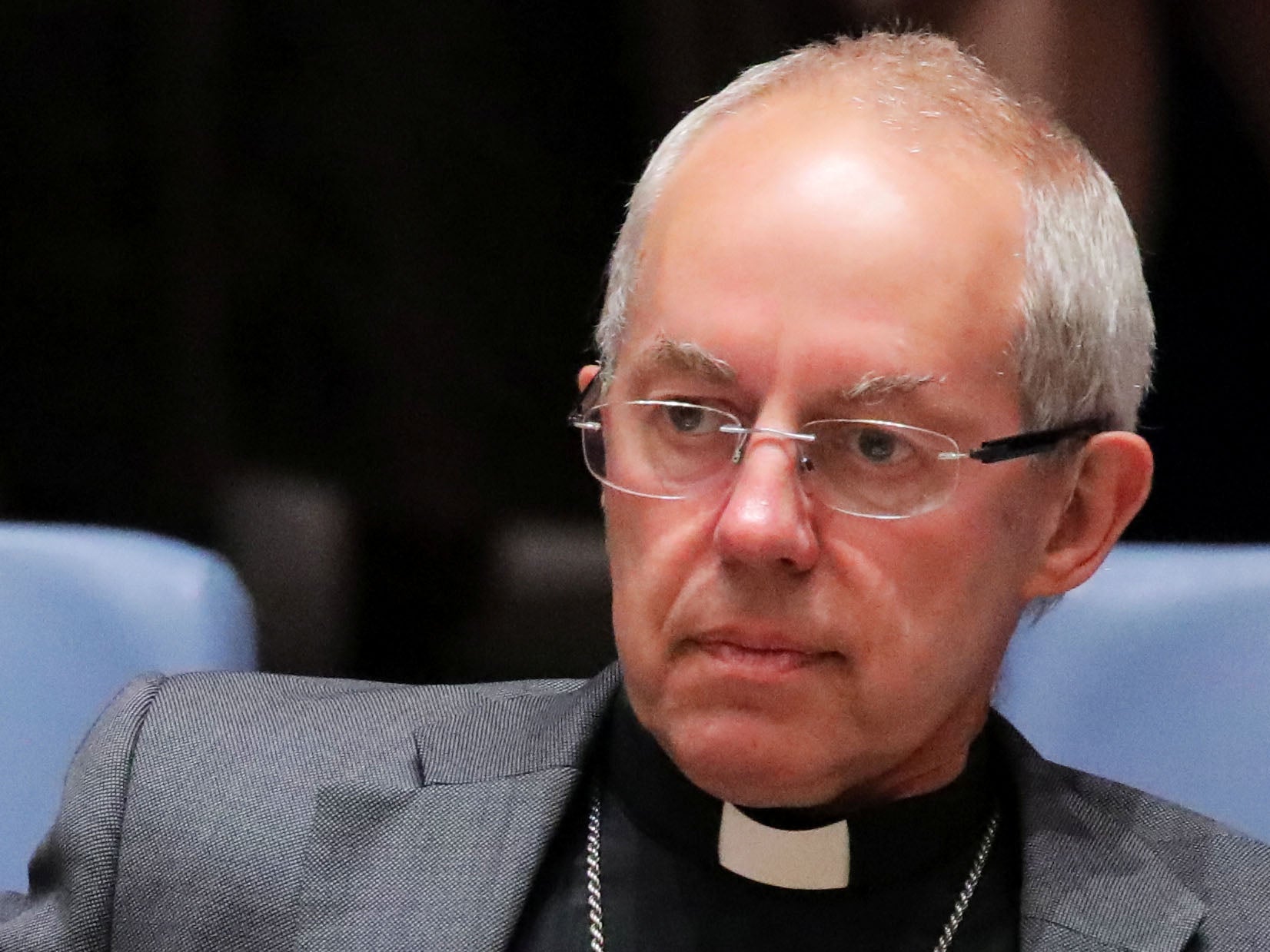Bishops involved in sexual abuse do not get 'an easy ride', Archbishop of Canterbury claims
Mr Welby says he remains 'emphatically' ashamed of the Church for its handling of safeguarding matters

Your support helps us to tell the story
From reproductive rights to climate change to Big Tech, The Independent is on the ground when the story is developing. Whether it's investigating the financials of Elon Musk's pro-Trump PAC or producing our latest documentary, 'The A Word', which shines a light on the American women fighting for reproductive rights, we know how important it is to parse out the facts from the messaging.
At such a critical moment in US history, we need reporters on the ground. Your donation allows us to keep sending journalists to speak to both sides of the story.
The Independent is trusted by Americans across the entire political spectrum. And unlike many other quality news outlets, we choose not to lock Americans out of our reporting and analysis with paywalls. We believe quality journalism should be available to everyone, paid for by those who can afford it.
Your support makes all the difference.The Archbishop of Canterbury has insisted that he does not give bishops involved in child sexual abuse "an easy ride".
The Most Rev Justin Welby was giving evidence to the Independent Inquiry into Child Sexual Abuse (IICSA) investigation into the Church of England where he has featured heavily over the last nine days.
As the head of the Anglican Church he has faced accusations of failing to sanction bishops accused of committing or failing to report child sexual abuse.
One survivor, Rev Matthew Ineson, previously criticised Mr Welby and the Archbishop of York Dr John Sentamu for failing to act after he disclosed being abused as a teenager by a priest.
Mr Ineson told the inquiry: "I cannot see the face of Jesus in the Archbishop of Canterbury or York. The Archbishop of Canterbury consistently takes no further action and, to me, therefore, condones all these actions."
Mr Welby said that although he was the head of the Church of England, he had no direct power but "influence" over the other bishops.
"It is hard to say where influence moves into power and control, I have the power to suspend," he said.
Fiona Scolding QC, counsel for the inquiry, asked the archbishop to explain why all but six safeguarding complaints against bishops were dismissed or had no action taken last year.
After he was asked if bishops got an "easy ride", Mr Welby replied: "My honest answer is I don't believe so, but I would say that, wouldn't I. I am not likely to say 'I give bishops an easy ride but I just don't want to tell you that'. I do not do it in any way consciously at all, quite the reverse.
"I think suspending a bishop is not giving a bishop an easy ride. It is not an easy ride, however much you say it is a neutral act. It is immensely public and immensely humiliating and hard."
The independent inquiry, founded in 2015, is investigating institutional failures to safeguard children in 13 public bodies, including the Church.
The archbishop appeared at the inquiry last year as part of an investigation into abuse in the Diocese of Chichester, where he said he was "ashamed" of the Church.
The investigation into the Anglican Church is looking into the suitability of safeguarding and child protection policies and practices.
Mr Welby said he remained "emphatically" ashamed of the Church for its handling of safeguarding matters.
The archbishop was asked about Bishop Peter Forster, the UK's longest serving bishop, who recently faced calls to resign after it was revealed he knew about a priest with a conviction for child sexual assault.
Bishop Peter allowed the priest to continue practising in part due to his views on forgiveness, the inquiry heard.
Mr Welby said he was "horrified" about his views, telling the panel: "It is really shocking to find a person who thinks that forgiveness means that someone is no longer a risk."
He told the inquiry that diversity was a solution to a lack of accountability and openness within the Church of England which helped stifle the reporting of abuse.
Mr Welby said it was important to discuss human sexuality to allow for more openness and support for victims and survivors.
Towards the end of the hearing, Mr Welby was asked whether he would apologise to Mr Ineson.
He referenced a letter he had sent in 2017 which stated he was "deeply sorry" about the abuse and the way it had been dealt with by the church.
Press Association
Join our commenting forum
Join thought-provoking conversations, follow other Independent readers and see their replies
Comments